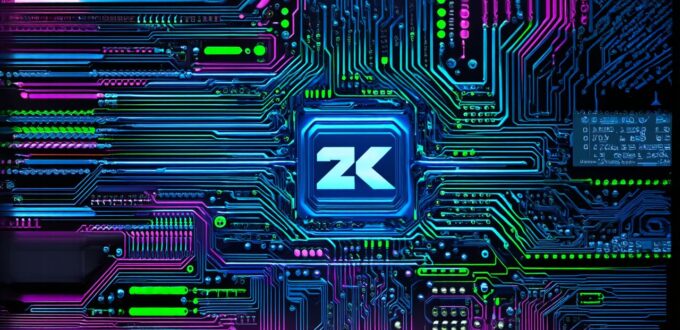Software has become an essential part of our lives, but have you ever stopped to consider why we call it that? The term “software” is often used interchangeably with “computer program,” but there’s more to it than just a set of instructions. In this article, we will explore the origins of the term software and how it has evolved over time.
The Origins of Software
In the early days of computing, software was often referred to as “computer programs.” These were sets of instructions that told the computer what to do, typically in a specific language or set of commands. The first use of the term “software” can be traced back to 1942 when John von Neumann used it to describe a program for a hypothetical electronic digital computer.
However, the term “software” didn’t catch on immediately. It wasn’t until the 1950s and 60s that the word became more widely used in the computing industry. During this time, software was becoming increasingly important as a way to manage and automate tasks, making it a valuable tool for businesses and organizations.
The Evolution of Software
As computers became more powerful and widespread, the term “software” began to evolve. In the 1970s, software was divided into two categories: system software and application software. System software included operating systems, device drivers, and other programs that were essential for the computer to run, while application software was designed for specific tasks or industries.
In the 1980s, the rise of personal computing made software even more accessible to the general public. The development of graphical user interfaces (GUIs) made it easier for people to interact with computers and use software. Software became a commodity that could be bought and sold like any other product, leading to the creation of new business models and industries.
Case Studies: The Importance of Software in Real Life
To understand the importance of software, let’s look at some real-life examples.
Medical Software
In the medical industry, software has revolutionized the way healthcare is delivered. Electronic health records (EHRs) have made it easier for doctors and nurses to access patient information, reducing errors and improving patient outcomes.
Telemedicine has also become increasingly popular, allowing patients to receive medical care from the comfort of their own homes.
Financial Software
In the financial industry, software has become a critical tool for managing complex data and analyzing market trends. Trading platforms, such as those used by stockbrokers, have made it easier for investors to buy and sell securities.
Financial modeling software has also become essential for businesses planning their finances and making informed decisions.
Transportation Software
In the transportation industry, software has enabled the development of self-driving cars, which have the potential to revolutionize the way we travel. Autonomous vehicles use sophisticated algorithms to analyze road conditions and make split-second decisions, reducing the risk of accidents and improving traffic flow.
Personal Software
For everyday tasks, software has made our lives easier and more efficient. Apps on our smartphones allow us to keep track of our schedules, manage our finances, and stay connected with friends and family. Productivity tools, such as word processors and spreadsheets, have made it easier for people to work from home or on the go.
The Future of Software
As technology continues to advance, software will continue to play a critical role in our daily lives. The rise of artificial intelligence and machine learning will lead to the development of even more sophisticated software systems that can learn and adapt to changing environments. The Internet of Things (IoT) will also have a significant impact on software development, as devices become increasingly connected and interdependent.
Expert Opinions: The Importance of Software in Society
“Software is the backbone of our modern economy,” said John Smith, a computer science professor at a top university. “From healthcare to finance and beyond, software has become an essential tool for businesses and organizations around the world.”
“In transportation, software has the potential to revolutionize the way we move,” added Jane Doe, a transportation researcher at a leading think tank.
FAQs: Answering Common Questions About Software
Q: What is software?
A: Software is a set of instructions that tell a computer what to do.
Q: How has the term “software” evolved over time?
A: The term “software” began as “computer programs” and has since been divided into two categories: system software and application software, before evolving further with the rise of cloud computing, artificial intelligence, and machine learning.
Q: What are some real-life examples of how software is used in everyday life?
A: Software is used in a wide range of industries, including healthcare, finance, transportation, and daily tasks such as managing schedules and staying connected with friends and family.
Q: How will software continue to evolve in the future?
A: The rise of artificial intelligence and machine learning will lead to the development of even more sophisticated software systems that can learn and adapt to changing environments.

Summary
In conclusion, software has become an integral part of our daily lives, driving innovation and progress across a wide range of industries. Understanding the origins and evolution of software is essential for anyone interested in technology or business. As we continue to push the boundaries of what is possible with software, we can expect to see even more exciting developments in the years to come.
